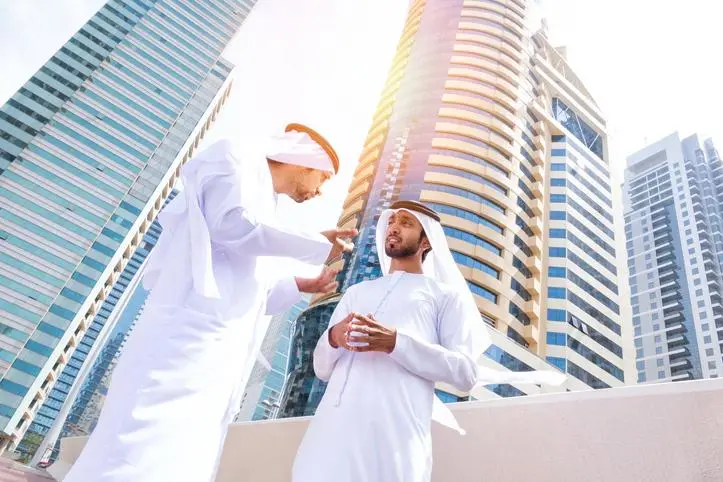PHOTO
Art doesn’t just nourish the soul; it feeds the economy. With that in mind, analysts and entrepreneurs in the creative industry have heaped praise on Dubai’s latest plan to introduce a cultural visa, stating that it won’t just boost the talent pool but will also fuel economic growth.
The new initiative, which will benefit artists, authors and innovators, was recently announced by Sheikh Mohammad bin Rashid Al Maktoum, Prime Minister and Ruler of Dubai. As part of a “new cultural vision,” a creative free zone will also be set up in Al Quoz, and Dubai’s approximately 6,000 arts and culture companies will be used to help position Dubai as a “global art destination.”
While the contribution of culture and the arts to the local economy is often overlooked, the latest data have shown that this sector has huge potential for growth, and the introduction of a new visa will act as a further catalyst.
The UAE’s creative goods exports increased from $1.5 billion in 2005 to $14.9 billion in 2014. In 2017, the UAE’s arts, recreation and other service activities sector was also among the top performers in the non-oil category, with a 5.1 per cent economic growth, outpacing other sectors like manufacturing, education, and transportation and storage, according to Central Bank data. The growth, however, contracted to −0.1 per cent in 2018.
Nevertheless, Mehrnmoush Shafiel, an analyst at Euromonitor International, said there has been consistent growth in the creative business sector. Between 2017 and 2021, the number of businesses engaged in the arts, entertainment and recreation is forecast to post an 8 per cent increase. Consumer spending on cultural events is also likely to rise significantly, especially as the Expo 2020 is drawing closer.
Euromonitor predicted that 30 million people will visit the UAE by 2021, up from 9.7 million in 2014, and this will fuel further spending in the arts and culture sector.
“There is a constant growth of outlets, which is a reflection of the appetite of the UAE for cultural consumption,” Shafiel told zawya.com. “The UAE is fueled by diversity, and this means that they have a hunger for novelty and anything that is new: a fertile land for a creative-based economy.”
“The UAE has been swelling with cultural aspiration,” Shafiel continued, “and the country has been experiencing a meteoric rise as a dynamic hub of creativity, art and design. There is a huge untapped wealth of potential in the region, and with the recently announced artistic visa, we can predict that artists and innovators from every corner of the Middle East will flock to the country.”
According to Anir Chatterji, Director and Middle East Immigration and Employment Leader at PwC, there have been continued efforts to lure top talent to the UAE, especially through such initiatives as the long-term visa for investors; entrepreneurs; specialists in science, medicine and research; and outstanding individuals with PhDs from the world’s top 500 universities.
The latest initiative will strengthen the UAE’s position as a talent hub and encourage more individuals, this time in the fields of arts, literature and innovation, to live and work in the country. “Creating this talent hub and attracting top individuals across many sectors will have a direct impact on the economy as Dubai seeks to be the lead on all fronts,” he added.
Chatterji noted that more than 500 cultural events are already being held in Dubai every year, while tourist numbers have continued to increase, hitting 15.9 million in 2018 and forecast to reach 23 million in 2021. “It is no secret that Dubai’s reliance on tourism is growing, with the number of tourists increasing year on year… With the new cultural initiative especially, Dubai will want to create and host the best events and exhibitions attracting artists and innovators, which will in turn increase visitor footfall to the UAE.”
CONFIDENCE, SECURITY
But there is more to the new initiative than just attracting international talent or creating more creative enterprises; expatriates within the industry can benefit from it as well.
Shruthi Rameshan, founder of Avega Dance Creations, a dance theatre production company in Dubai, said the new visa is like a “handshake from the government, not just towards the artistic enterprise, but towards art.”
More importantly, it will boost the confidence of local talent who would otherwise have to worry about their residency status. “It is not about seeking the ‘right’ skill outside but nurturing precision in-house. Not being stressed about residency will allow local talent to sink deeper into their respective forms,” Rameshan said.
Malavika Varadan, owner of The Hive, a studio space that runs speech and drama classes, said those who will qualify for the new visa will now be able to focus on honing their craft. “A lot of people who would otherwise be struggling to find or keep full-time jobs while also pursuing that passion in art, acting, dance or music can now have the liberty of quitting the full-time job and now focusing just on the art. And the more time they have, the more they will be able to make a money churner [out of it], the more they will be able to make it profitable. It will be the first step in a long journey to make Dubai a cultural hub.”
(Writing by Cleofe Maceda, editing by Seban Scaria seban.scaria@refinitiv.com)
Our Standards: The Thomson Reuters Trust Principles
Disclaimer: This article is provided for informational purposes only. The content does not provide tax, legal or investment advice or opinion regarding the suitability, value or profitability of any particular security, portfolio or investment strategy. Read our full disclaimer policy here.
© ZAWYA 2019




















